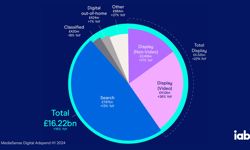Africa poses challenges to publishers that are different to those faced in any other part of the world; challenges which lead many to ignore or abandon the continent completely. This is a shame. Undoubtedly undertaking business in Africa can be frustrating but the rewards can be enormous, both financially and in terms of satisfaction.
The Economist once famously designated Africa as "The Hopeless Continent". This epitaph caused much internal as well as external debate but it did achieve one aim of focussing attention upon a part of the world so often wrongly ignored. In fact this author takes an opposite view of Africa, believing that it has hope and opportunity but that it continues to be an enigma, often flattering to deceive.
Size
First, some statistics. There are some 53 countries in Africa with a combined population of about 790 million. Not to be sniffed at!
However reaching this potential audience is not necessarily easy. It is dispersed, with a very large number being rural rather than urban based and therefore difficult to reach. As with most continents the more literate audiences tend to be city based and it is here that publishers should direct the majority of their efforts and resource.
In 1970 there were only six cities with populations in excess of one million (Casablanca, Alexandria, Cairo, Kinshasa, Johannesburg, Lagos). Now there are estimated to be 31 (too many to list here). But are levels of education and literacy improving? The short answer is yes. According to UNESCO, the adult illiteracy rate in 2000 for Kenya was 17.6% (down from 59.4% in 1970), for South Africa it was 14.8% (30.3% in 1970) and for Zambia it was 21.8% (52.3% in 1970).
South Africa
It is not difficult to divide Africa into regions. An obvious one is north of the Sahara and south of the Sahara but this probably lumps too many differences together, at least in the latter case. I would therefore stick with the traditional divisions of north, south, east and west. Each of which is very different and needs to be handled differently.
Underlying everything however is the current economic powerhouse of Africa; South Africa. According to the US State Department, in 2003 South Africa had a GDP of US$160 billion, a figure that dwarfed those of other African states – Kenya (US$12.7b), Nigeria (US$43b) and Zambia (US$3.95b). With the exception of the USA no single country so dominates the economic landscape of a continent as South Africa.
Language
Although there are estimated to be 800 different languages in Africa, as a western publisher it is likely that only two will be of any significance, English and French. English is widely spoken throughout the continent although French remains the business language in parts of the Magreb (particularly Algeria) and in the ex-French colonies of West Africa (Mali, Mauritania, Burkina Faso and Ivory Coast).
Subscription sales
Subscriptions make up around 40% of the Economist's sales in Africa perhaps indicating that the continent is more of a subscription market than many believe. But the picture does vary from country to country partly driven by the sophistication and efficiency, or otherwise, of the local postal services.
Certainly in the business districts and the more affluent parts of some of the more affluent cities (in South Africa, Kenya and Nigeria for instance) subscription sales can be the mainstay of a circulation drive.
However, obtaining accurate and regularly updated mailing lists is difficult and in many countries impossible. This is partly because direct mail is in its infancy in many parts of Africa and therefore few companies specialise in this kind of service. In part it is also because the expat community is often a transient one spending two or three years in a particular destination before moving on. This behavioural pattern sorely tests the accuracy of some lists.
Another issue is the reliability of local postal services. These can vary from country-to-country and city-to-city between reliable and non-existent. To overcome this obstacle, especially for time-sensitive publications, it is often necessary to resort to hand-delivery. For the Economist and other international weeklies on-time delivery, particularly for the weekend, is important and the only way of guaranteeing this (albeit in certain districts of certain cities) is to hand-deliver.
Good customer service back-up is essential. For a UK based title exporting to Africa it is likely that its subscription fulfilment company will be based at home. This is all very well but because of the special nature of undertaking business in Africa it is helpful to have local customer service back-up. Whilst it would be impractical to have this in every country it is useful to have the service in the key countries such as South Africa, Botswana, Zambia, Tanzania, Zimbabwe and Kenya.
Newsstand sales
Don’t expect a WHS in every high street and a kiosk on every corner. Trestle tables and pavement blankets displaying newspapers and magazines are more the African style! Efficient though this may be in bringing news to the people this can leave something to be desired in terms of the paperwork required to ensure everything is in order.
The author has seen on many occasions across Africa, copies of the current issue of the Economist (amazing in itself bearing in mind the distances and logistics involved) next to piles of the same publication sometimes five or more years out of date. In asking the vendors whether the old ones sold I have been met by incredulous looks and the words ‘of course, why not!’ There is a thirst for information in Africa and, well, if it’s a few years out of date so what!
Marketing and promotion
If you wish to increase sales in Africa the same principles apply as elsewhere – namely make some ‘noise’. Don’t expect sales to occur naturally. Osmosis is a wonderful physical force but it tends to be slow. Therefore try to back up your sales strategy with a marketing programme. Whether you use subscription marketing techniques, advertising, public relations or any of a myriad of other activities will depend upon your title, the budget and the markets in which you are selling.
You will require local knowledge and in this your local agent, distributor or partner should be able to help. The likelihood is, unless you are very lucky, that you will not be able to travel to Africa as often as you would wish so you need to trust those based there who are employed to look after your interests. If you can afford it, employ a specialist particularly if you are launching or undertaking a particular promotion.
For the publisher the issues remain the same as in other parts of the world, basically; informing the audience about your product and making it stand out from the competition.
In terms of reaching your audience much will depend upon their level of sophistication and location as well as your budget. Traditional means of promoting (TV, radio, press, outdoor etc) all work to different degrees from country to country. Local knowledge is essential and must be sought before entering into any major promotion.
In Africa there is also much potential in what might appear to be unconventional marketing techniques. In the main cities in South Africa (and elsewhere) much trade is conducted at major traffic lights (or robots as they are called there). You can buy anything from garden furniture to rubber bands if you wish. These intersections can also be used successfully to sell and promote publications. The handing out of promotional literature and teasers is an accepted and often profitable activity. This may not be a traditional promotional approach but it is one that reflects local habits and is relatively inexpensive.
Pricing
Africa is not a rich continent and yet can be an expensive one to reach. These facts pose a difficult dilemma for the publisher; what to charge?
Much will depend upon what revenue streams are available; circulation, advertising, list rental, spin-offs such as other products and services and conferences etc. In terms of cover price and subscription price it's important to see how the competition is priced. Also take into account local conditions, the state of the economy and size and relative wealth of your target audience.
Whilst it is difficult, and probably not advisable, to have several different prices within a single country if you are exporting widely across Africa it is likely you will end up with many different prices each with different, and variable, exchange rates against sterling or the US$. This will probably cause your finance director to pull his hair out but it is one of the realities of doing business in Africa.
In terms of payment there are no reasons why payment from Africa should be more problematical than anywhere else, with perhaps two exceptions, speed and the danger of economic instability. Sadly the economies of many African countries are not as robust as the west and as a consequence there are many fragile economies making payments that are occasionally infrequent and can be, due to exchange rate variations, somewhat disappointing.
Provided you do not have an over reliance on conducting business in these countries and that these concerns have been built into your business plans, your risks should be more manageable.
The internet
In many ways Africa is the continent that could and should benefit most from the internet. The internet is perfectly placed to mitigate against the great distances involved and the challenges of physical distribution. Yet, because of the cost it has not yet expanded as much as it should. This combined with a thirst for knowledge has ensured that newspapers and magazines still have masses of opportunities.
Distribution
Distribution and availability are everything. It is stating the obvious but if your publication is not on sale it is not going to be purchased. For Africa the likelihood is that you will print offshore and ship to Africa. If your publication is time sensitive this can prove tricky. Sadly few airlines treat ‘news’ as a perishable product and if goods need to be offloaded, for whatever reason, the press is often the first to go.
This means that good production runs and deliveries to airports can all be undone by delays to flight and the risks of offloading. Problems can also arise at arrival. Customs clearance can be slow.
All of this means it is important to have good freight forwarders working for you and good relationships once your publication arrives to ensure your product is cleared quickly and gets into the wholesale or postal network as soon as possible.
Information needs
In circulation sales, data is king. Accurate information on what you sell, where, when and how (and hopefully to whom) is crucial if you are able to plan ahead and put in place a strategy. Without this information, which we often take for granted in the UK, it is very easy to waste large amounts of money and take your publication nowhere. Whilst the data is available, sometimes the speed of receiving it can be frustrating and once again this is where you need reliable local knowledge.
In conclusion
The above is only a snapshot of some of the challenges facing publishers in Africa. It is so easy to paint a picture of gloom about Africa (and without doubt it can be frustrating) but there are real opportunities there for the adventurous and these will, hopefully, increase in time.
I am reminded of the story of the two shoe salesmen from competing companies who travelled to West Africa in the 1930's. After a week or two travelling around they both contacted their respective head offices back in the UK. One said 'Nobody here wears shoes, coming home on the next ship'. The other, 'Nobody here wears shoes please send 5,000 pairs various sizes' Opportunities - it all depends on how you look at them.
| Choosing a distributor | |
| As to selecting a good distributor or agent the same principles apply to elsewhere and by way of a checklist the following points should be considered. | |
Options | What exactly are the choices? Who do other international publishers use? And how important will your magazine be to them? |
| Distribution | Do they cover the whole country? How many distribution runs do they have? Do they have back-up runs if something goes wrong? Do they make seasonal efforts (summer season, holidays etc)? How much control do they have – do they own the infrastructure or contract out? |
| Marketing | Are they purely a transporter – or will they help in promotion, POS etc? Do they have reps or merchandisers? |
| Other services | Do they offer hand delivery? Can they supply direct to hotels, airports and the like? |
| Retail | What do outlets and wholesalers think of them? Do they own any retailers or wholesalers themselves? |
| Administration | How quickly will you get confirmation of arrival or shortages? How rapidly do they collect unsolds? How fast will they pay you? What kind of reports will you receive? |
| Financial | Ask other publishers – and Distripress – to give you references regarding their financial probity and health. |
| People | Who are the people you will be dealing with? Are they experienced? Have they worked with publishers before? |
| Trial | Get them to agree to work on a test basis – for a minimum of six months. |
| Measurement | Measure sales – and other key factors. Make it clear to them what criteria you are measuring them against. |
The Economist in Zambia - a basket case study?
Poor infrastructure hurts business in Zambia by adding to costs. The roads in Zambia aren’t exactly paved in gold. And since the price of copper plummeted, bringing Zambia’s economy down with it, the roads are hardly paved at all.
The Great East Road links Lusaka with Chipata, the capital of the Eastern Province and beyond. The first half of the 750km journey is fairly easy on your nerves and vehicle’s suspension. There is the odd hazard such as the bridge just outside Lusaka that was washed away earlier this year. The Zambian army took weeks to build a pontoon bridge.
In the second half of the journey it’s impossible not to take your eye off the road as it sometimes simply disappears. Young boys throw earth into the pot-holes and beg tips for their efforts but some of the holes are big enough to fish in during the rainy season. Chipata finally provides a welcome chance for your spine to expand back into its normal shape.
Chipata has a population of around 200,000 but there isn’t a single bookshop or newsagent. Economist subscribers get their copies early in the week following its Friday publication but its price is beyond the reach of most Zambians. Local newspapers are of variable quality and are also pricey. Despite the abundance of copper, not much of it has been turned into connected wire. Both the internet and electricity are erratic and expensive.
And that’s where radio comes in. The Economist’s belief and support for Africa is demonstrated through the Economist Charitable Trust. It has helped build Radio Breeze, a community radio station, which now reaches about half the Eastern Province’s 1.4 million people. Getting the station up and running was anything but what its name might suggest.
It was the first non-religious and non-government station and the only station to broadcast a weekly current affairs programme; the Economist’s World this Week. It brings Zambians independent analysis of what’s going in their continent as well as a round up of the week’s political events.
Not only does the Economist bring news and views for free to Zambians who would never otherwise receive them, it hopes to gain in the long term. As more and more Africans escape the poverty trap, its presence and relevance will ensure subscriptions and newsstand sales. Delivery might not be immediate but good things come to those who wait.










